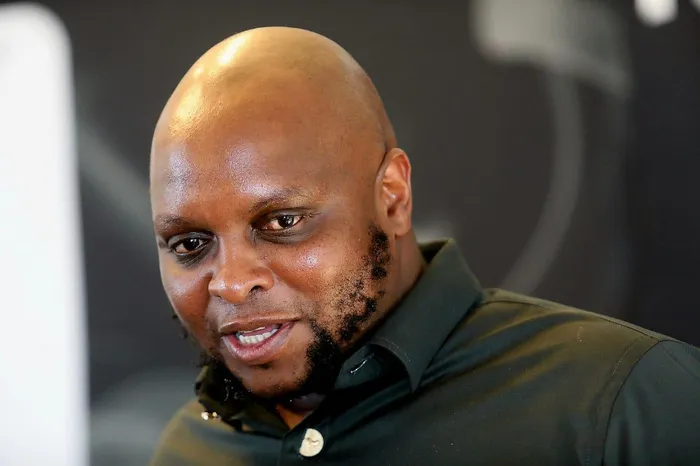What Shivambu Holdings really intends with his political maneuvering

For Floyd Shivambu, resignation from uMKhoto weSizwe would be costly as it depreciates his brand equity, whereas martyrdom by excommunication appreciates it.
Image: Timothy Bernard/ Independent Newspapers
Siseko Maposa
POLITICAL economists have long entangled themselves in a circular debate – whether politics shape markets or markets shape politics – as if parsing some grand cosmic chicken-and-egg dilemma.
To me, this has always been a false binary. The interplay is self-evident: while reciprocal influence exists, history’s unrelenting verdict is that material conditions shape everything, including politics and its actors.
Which brings us to the spectacle of our moment. Floyd Shivambu has left many baffled following his recent press conference on June 19.
What are we to make of a man who declares unwavering loyalty to a party while simultaneously plotting its potential replacement? A loyalist who now embarks on a national tour to gauge whether the movement he claims to cherish should be abandoned altogether.
One who vows never to resign yet taunts the MK Party to expel him. Let me not even unpack the comments he made of the EFF’s Julius Malema, and other insinuations that Duduzile Zuma is both chemically compromised and digitally unhinged.
These seem bizarre but much of our confusion stems from a fundamental misapprehension: we keep expecting politicians to behave as anything other than market agents.
To cut through the noise, we must reframe our lens entirely. Consider instead an analogy drawn from corporate theory – a framework both ruthlessly pragmatic and richly explanatory. Modern politics operates on two irreducible facts:
- Politicians operate as Strategic Business Enterprises (SBE), each leveraging their unique competitive advantages – charisma, intellect, social capital, or regional appeal – to broker advantageous deals with political parties – I will get to what these are later. Like businesses, their influence varies: some remain small-scale operators, while others grow so dominant that their personal brand eclipses the very parties they align with (e.g., Jacob Zuma and MK Party). Note: The pursuit of profit remains an inherent imperative for SBE’s.
- Parties function like corporate conglomerates, some bigger than others, controlled by elite "shareholders" (discreet funders) who curate a portfolio of politicians (SBEs to maximise returns on their investment). A critical performance metric for these shareholders is electoral support, as it directly measures their capacity to influence state machinery in service of their interests. Standard corporate governance applies: Underperforming or disruptive assets – say, a Secretary-General or Party Leader – are swiftly replaced to protect shareholder interests.
This model strips politics to its transactional core - where allegiance carries a price tag and influence obeys valuation.
What is Shivambu’s business plan?
I do not think he is misspeaking, rather he is executing. His provocations to the MK Party are not the ramblings of a disgruntled operative, but a deliberate baiting for expulsion.
Resignation would be costly (2nd from two different political parties in less than 12 months), as it depreciates his brand equity (that essential USP of credibility), whereas martyrdom by excommunication appreciates it.
And the trip around South Africa? This is not some earnest listening tour to “assess national needs”. A man of his strategic acumen and experience long ago diagnosed the market gap. Rather, its political venture capital. Shivambu Holdings is seeking seed funding for a new political conglomerate. His prospective investor pool includes a calculated consortium of disillusioned business moguls and charismatic religious leaders which he name-dropped at his press conference.
I yield the floor.
Maposa is Director of Surgetower Associates Management Consultancy, views expressed are of his own opinion.
CAPE TIMES